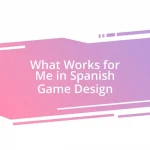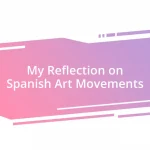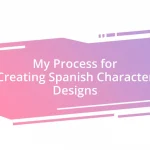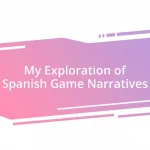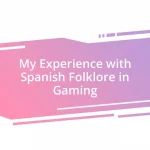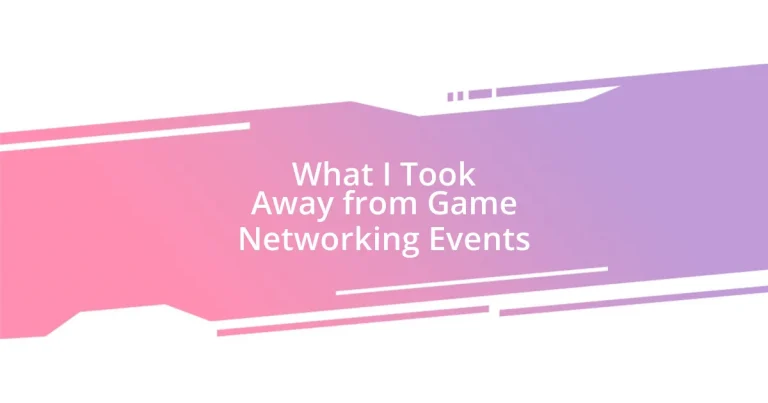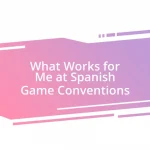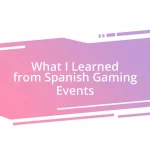Key takeaways:
- Authentic introductions and small gestures, like a smile or handshake, can create lasting impressions and open unexpected opportunities.
- Effective networking relies on active listening, clear communication, and emotional intelligence, along with timely follow-ups to nurture connections.
- Leveraging social media enhances networking by showcasing projects, participating in online communities, and maintaining an active professional presence.
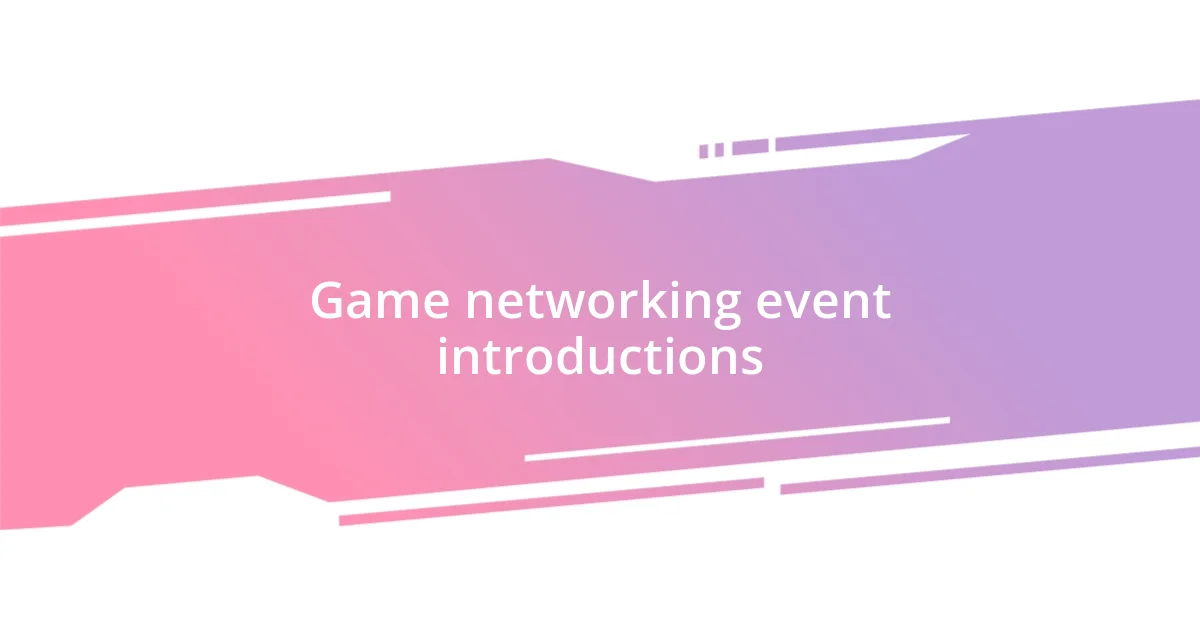
Game networking event introductions
When I first attended a game networking event, the introductions felt like a montage of excitement and nerves. I remember standing in a circle, each person sharing their passion for gaming while trying to gauge the energy in the room. Have you ever felt that rush when a shared interest suddenly bridges the gap between strangers? There’s something undeniably thrilling about realizing you’re among like-minded individuals who speak the same gaming language.
I’ve noticed that the way you present yourself in these settings can set the tone for the entire interaction. One time, I nervously introduced myself as a game designer, only to find out the person I spoke to was an established publisher. Their enthusiasm for hearing my ideas sparked a fascinating dialogue that lasted well beyond our initial introductions. It’s a vivid reminder that your introduction can open unexpected doors; how often do you seize those moments?
Also, don’t underestimate the power of a friendly smile and a confident handshake when introducing yourself. The warmth conveyed through genuine interactions can cut through the tension and create lasting impressions. I remember shaking hands with someone after they enthusiastically discussed a game they admired, and it made me realize how crucial those small gestures are in setting a welcoming atmosphere. Doesn’t a simple, authentic introduction make you feel more connected?
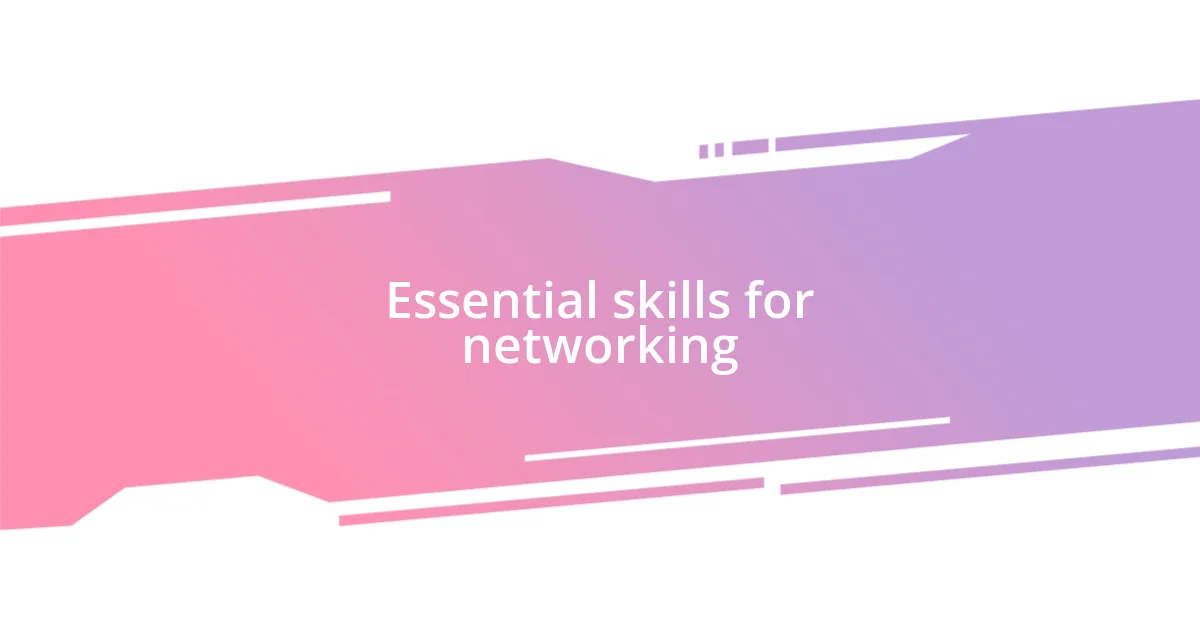
Essential skills for networking
Networking is more than just exchanging business cards; it’s about building meaningful connections. In my experience, the most vital skills revolve around effective communication and active listening. I recall a moment when I consciously focused on truly understanding what the other person was saying rather than just waiting for my turn to speak. That shift in my approach helped me forge deeper connections and left a lasting impression on my conversational partner.
Here are some essential skills for networking that I’ve found valuable:
- Active Listening: Show genuine interest in others’ stories and ideas.
- Clear Communication: Be concise and articulate when sharing your thoughts.
- Confidence: Approach conversations with self-assurance, even if you’re feeling nervous inside.
- Emotional Intelligence: Tune in to the emotions of those around you to create a more relatable dialogue.
- Follow-Up Skills: Don’t just connect; make sure to reach out afterward to keep the conversation going.
By honing these skills, I’ve seen how networking can evolve from a daunting task into a rewarding experience.
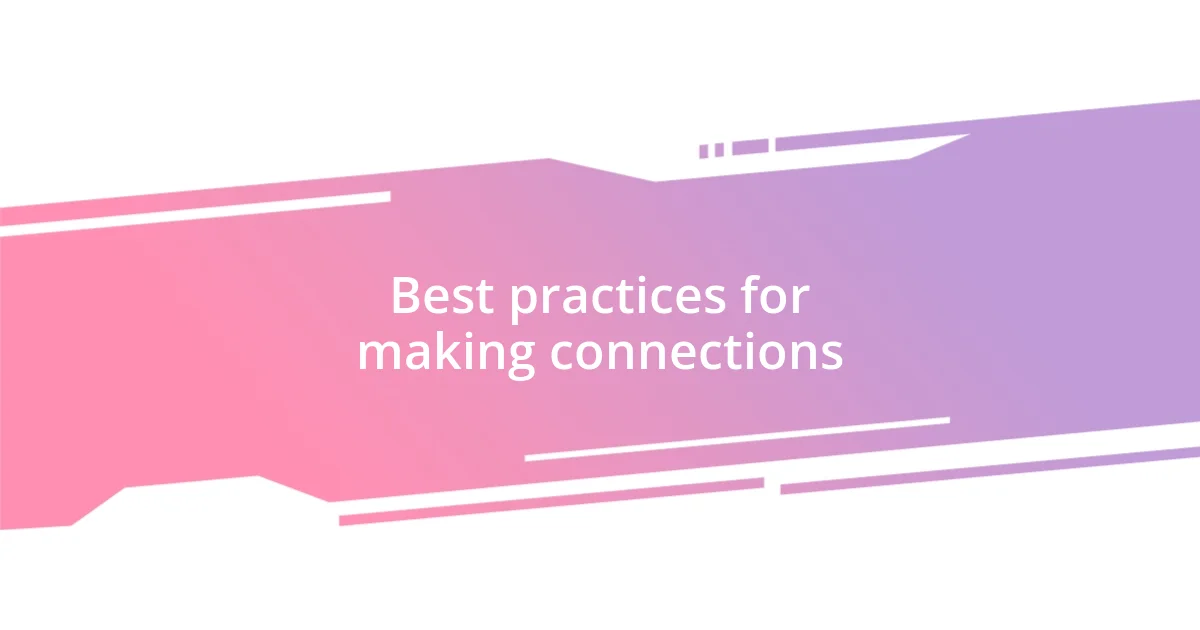
Best practices for making connections
Making genuine connections at networking events requires a mindful approach. I’ve learned that being present is key. For example, during one event, I found myself laughing with a group over our shared gaming experiences. That simple moment of vulnerability created an instant bond. Have you ever noticed how shared laughter can transform a conversation? It opens doors to deeper discussions and sets a friendly atmosphere.
It’s also crucial to follow up after your initial meeting. I remember swapping contact information with a fellow developer whose ideas resonated with me. A few days later, I sent them a message sharing a related article I thought they’d enjoy. This not only reignited our conversation but also established a foundation for a potential collaboration. Keeping the connection alive shows you value the relationship and aren’t just collecting contacts.
Lastly, personalizing your approach can yield remarkable results. At one networking event, I tailored my pitch to align with the interests of the person I was talking to. Instead of sticking to a generic script, I highlighted aspects of my work that related directly to their projects. The shift in their demeanor was noticeable—they felt understood and appreciated. This kind of engagement can elevate a standard introduction into a memorable exchange that paves the way for future opportunities.
| Best Practices | Description |
|---|---|
| Be Present | Engage actively in conversations, capturing moments of humor and connection. |
| Follow Up | Send a message after the event to keep the dialogue going and show genuine interest. |
| Personalize Your Approach | Tailor your discussions to the interests of others for a more engaging and memorable exchange. |
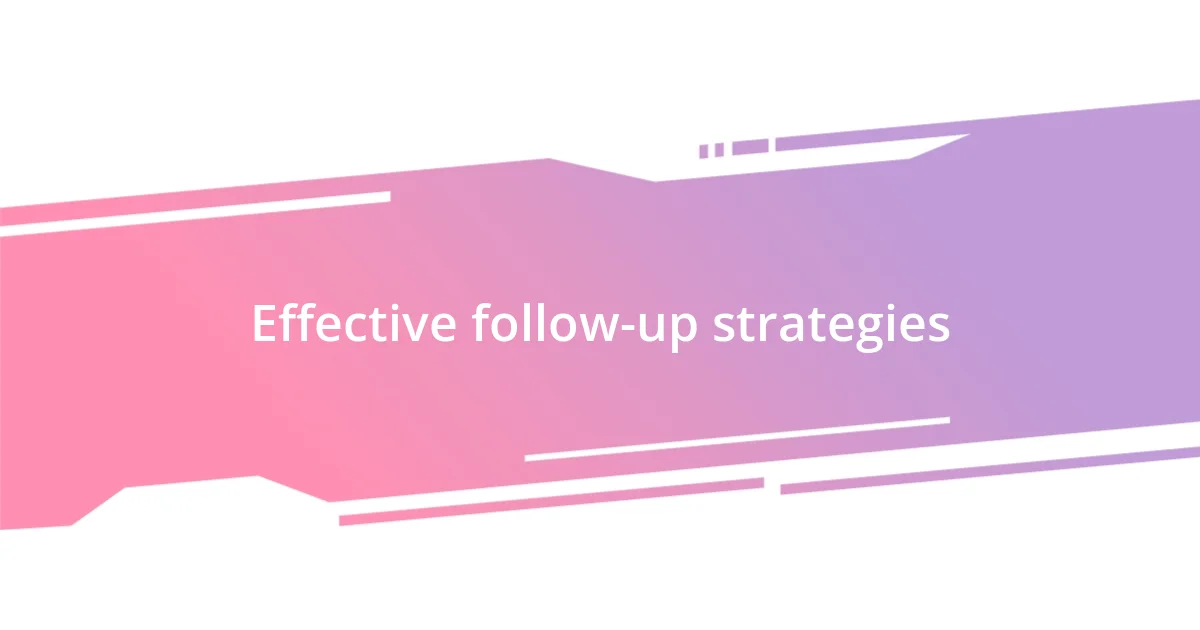
Effective follow-up strategies
Following up effectively after a networking event can truly transform a fleeting moment into a lasting relationship. I recall a situation where I met a game designer who shared some incredible insights about indie development. Instead of just letting the connection fade, I followed up with a thoughtful email, including a specific idea we discussed. This gesture not only helped solidify our conversation but also demonstrated that I valued their input. Don’t you think a personal touch can make all the difference?
Timing is crucial when it comes to follow-ups. I often strive to reach out within a few days of the event while the interaction is still fresh in both our minds. Once, I made the mistake of waiting too long and lost momentum. It’s essential to strike while the iron is hot! When you send that follow-up message, you’re not just reminding them of your interaction—you’re reigniting the spark and expressing genuine interest in continuing the dialogue.
One method I find incredibly powerful is sharing relevant resources or insights in my follow-up. After conversing with a marketing expert at a recent event, I sent them a link to an article that echoed our discussion on promotional strategies. They responded positively, expressing appreciation for the gesture. This small act not only keeps the conversation alive but also positions you as a thoughtful contact in their network. Have you ever thought about how sharing knowledge can make you stand out in the vast sea of connections?
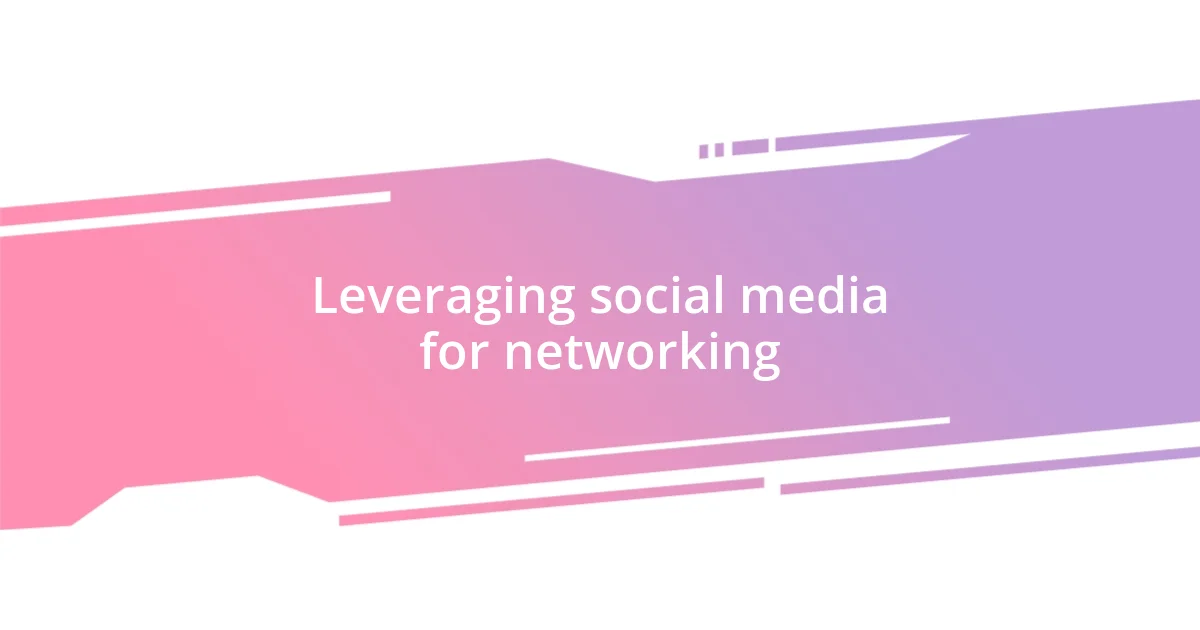
Leveraging social media for networking
Leveraging social media for networking has become a game-changer in how I connect with professionals in the gaming industry. I vividly recall posting about an event I attended, sharing not just photos but my key takeaways. The reactions were overwhelming—friends and colleagues chimed in, sparking discussions that introduced me to new contacts. Isn’t it fascinating how a simple post can lead to significant opportunities and deepen existing connections?
I believe that actively participating in online communities can greatly enhance your networking efforts. Joining forums or groups focused on game development has let me engage with like-minded individuals. For instance, I once shared a game concept I was working on in a community, and to my surprise, a fellow developer reached out with constructive feedback and an offer to collaborate. Don’t you think that social media can break down barriers that traditional networking sometimes creates?
Regularly updating your profiles to reflect your current projects and interests is another strategy I find invaluable. A while back, I updated my LinkedIn with a project I was passionate about, and it caught the eye of a recruiter at a gaming studio. They reached out, intrigued by my work. It reminded me that maintaining an active online presence is essential—it’s like having a business card that gets passed around without you even being there. Wouldn’t you agree that showcasing your passion can open unexpected doors?
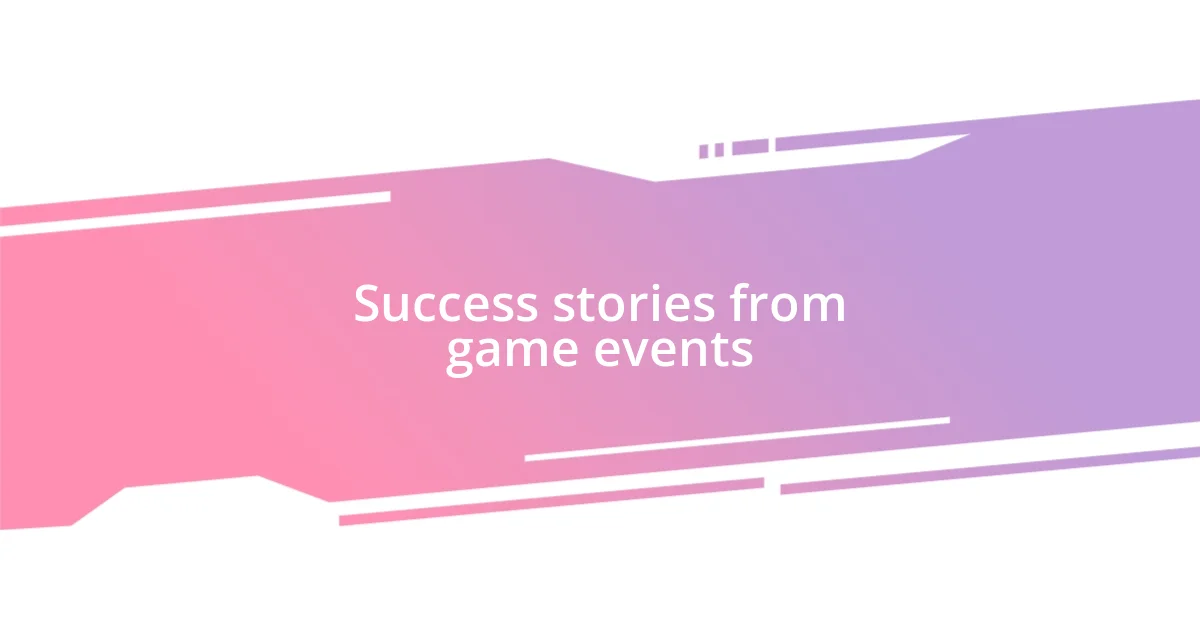
Success stories from game events
One of the standout success stories I experienced at a game networking event involves a casual conversation with a lead programmer from a prominent studio. We discussed the challenges of balancing creativity with technical limitations, and I mentioned a unique mechanic I was working on. To my surprise, they expressed interest and invited me to pitch it at a game jam they were hosting. Isn’t it incredible how a simple chat can lead to such exhilarating opportunities?
During another event, I met an indie developer who was looking for artists for their project. I had created some concept art for my own game, so I took a leap and shared it with them. They loved it! This collaboration not only enhanced my portfolio but also taught me the importance of being brave and seizing opportunities when they arise. If you were in my shoes, wouldn’t you have felt a rush of excitement seeing your work recognized?
Finally, there was a time when I followed a small studio on social media after meeting them at an event. A year later, they posted about needing beta testers for their new game, and I jumped at the chance to get involved. This led to meaningful feedback that improved their project and opened the door for future collaborations. Who knew that a fleeting encounter could evolve into a significant role in a game development process? It just goes to show the power of nurturing those connections.
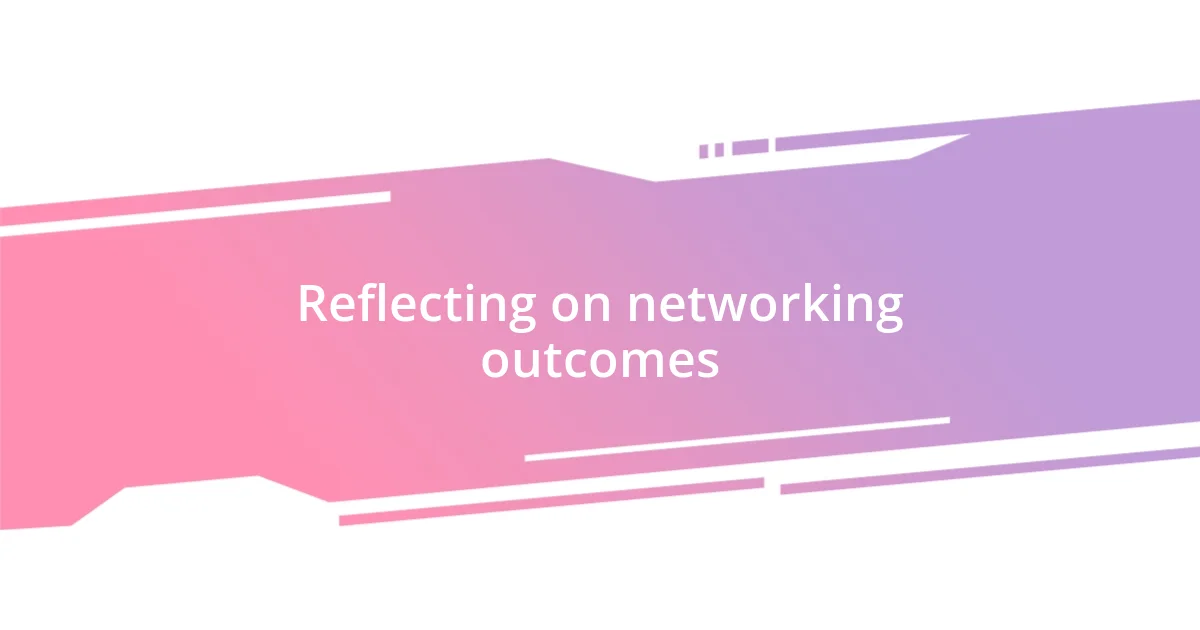
Reflecting on networking outcomes
Reflecting on the outcomes of networking events, I often find myself drawn back to those moments of genuine connection. One time, I struck up a conversation with a small indie studio’s founder, and we discovered mutual interests in game design. A few weeks later, that casual discussion turned into a brainstorming session for a collaborative project. It’s moments like these that remind me how powerful and unexpected networking can be—wouldn’t you agree that real connections often lead to the most meaningful outcomes?
Looking back at these experiences, I realize how important it is to follow up after events. There was this one occasion when I exchanged emails with a fellow attendee who had insights into user experience design. A simple “thank you” led to an ongoing dialogue that eventually resulted in me helping them with their upcoming game. It’s a great illustration of how nurturing those initial contacts can create ongoing opportunities—why wouldn’t we want to keep that momentum going?
Finally, I can’t help but reflect on how my mindset during networking events has shifted over time. Initially, I approached them with a transactional view, like I was collecting contacts. Now, I focus on building relationships instead. I remember feeling intimidated at first, but embracing vulnerability by sharing my journey opened up spaces for honesty and collaboration. Doesn’t it feel rewarding to turn those networking jitters into authentic interactions that foster support and creativity?
